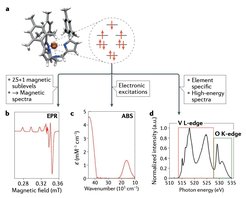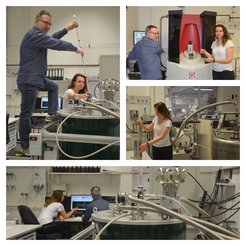International Expert Team emphasizes the importance of theoretical spectroscopy in NATURE REVIEWS

The design of chemical processes has reached a very high level of sophistication. Specifically designed molecules play a central role across all disciplines of chemistry including biochemistry, pharmacology and materials sciences.
The role of quantum chemistry in all areas of chemistry is of increasing importance. Using the powerful theoretical tools available today, it is possible to elucidate the structure of elusive reaction intermediates or to design chemical structures and processes that have yet to be realized in the laboratory.
However, theory is most useful when used in a synergistic fashion together with experiment. The most direct connection between theory and experiment is offered by the multitude of sophisticated analytical methods available today, foremost those based on the many variants of molecular spectroscopy.
The importance of combining experimental and theoretical spectroscopic investigations has been clearly recognized by the leading scientific journal in the world. In a recent contribution, NATURE invited the leading experts for theoretical spectroscopy to summarize the state of the art in an overview article. Among those experts is Prof. Frank Neese, who is heading the department of molecular theory and spectroscopy at the Max-Planck-Institut für Kohlenforschung, who has contributed his insights on transition metal spectroscopy to this article. Transition metals are among the most potent catalysts across all disciplines of chemistry and hence, elucidating the structure and function is a central chemical research goal.
“I am very happy that the role of theoretical spectroscopy is taking center stage now in theoretical chemistry. We will continue to develop new and ever more accurate and efficient theoretical tools for the benefit of the community.” Neese explains. Together with his team, he develops the ORCA program package that is used by more than 35000 researchers worldwide and that specializes in theoretical spectroscopy. ORCA is available free of charge to academic researchers and distributed to industry through the company FAccTs.
The article published by Nature Review is available under https://www.nature.com/articles/s43586-021-00034-1.














